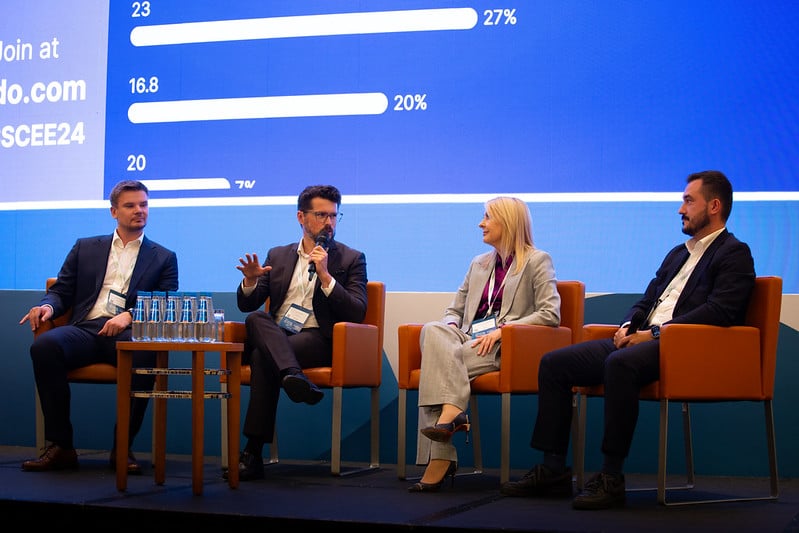
We hear from IPP Greenvolt about its big wins for BESS projects in last year’s capacity market (CM) auction in Poland.
The Portugal-headquartered international independent power producer (IPP) swept the CM wins for battery energy storage systems (BESS), winning 1.2GW out of 1.7GW awarded to the technology.
Enjoy 12 months of exclusive analysis
- Regular insight and analysis of the industry’s biggest developments
- In-depth interviews with the industry’s leading figures
- Annual digital subscription to the PV Tech Power journal
- Discounts on Solar Media’s portfolio of events, in-person and virtual
Jan Kloczko, the firm’s deputy commercial director for Europe, discussed the wins, the status of the projects, its activity in Hungary and more in this Q&A interview whilst at Solar Media’s Energy Storage Summit Central and Eastern Europe (CEE) 2024 in Warsaw, Poland last week.
Energy-Storage.news: talk us through the process of bidding into last year’s CM auction and how you managed to be so successful in it?
Kloczko: We were on a steep learning curve at the time and acquired the projects fairly late-stage. The CM is not a natural hunting ground for renewables developers and management is often a bit conservative around it, but at the end of the day it is a boon for financing.
We had the most mature portfolio in the market and a very good team, with someone who had a lot of experience in the CM. We did a lot of research into BESS capex to get the price right. We put a lot of money, effort and resources into a very intensive, iterative process of market analysis and our own financial modelling. We’d done the pre-qualification in January and then in June pressed for a decision from the top management to get it all ready on time to bid.
I would say it was the most intensive and costly exercise in my career but it paid off. We re-ran the models every two weeks just to account for BESS prices. We knew our pain threshold and we had good view of the distribution of technologies entering into the CM, which is really important.
What are your views on this year’s upcoming auction?
I think there will be plenty BESS participating and, despite the outcry over the de-rating, I think BESS will still be the marginal technology that will set the price again. The TSO has hoped to have more gas in the capacity market, I don’t think changing the de-rating factor will be enough to swing the momentum the other way. I think the price will still be high enough to make a good business case for BESS.
Because the market is new there are two extreme views on BESS in Poland right now. One is that it is too uncertain to invest in and the other is that the CM is free money you are being showered with and gives you 17-years of relaxation. It’s important to read through the CM rules carefully and think about degradation of the batteries over the project’s lifetime.
What’s the current status of the Poland projects, when can we expect them to start construction?
We have two projects that are entering the construction phase soon and hope to have them online by end of 2025/start of 2026. Both 200MW. As for the rest, we will get them online by 2027.
We are in the final stages of choosing suppliers for those first two projects. The BESS industry is moving towards standardisation and modularity and is very fast and flexible to deploy. We have a lot of interest from the suppliers, mostly from China.
And a brief word on your projects in Hungary?
We won some projects in the CfD scheme in Hungary, which is one of the most clear and and most understandable subsidy schemes available right now in Europe.
And your thoughts on the general state of play in the CEE market right now?
There is a lot of excitement about development and the market but people are worried about battery degradation, and trying to fully understand it. Everyone is also trying to feel their way around contracting structures, what to pay attention to. The majority of developers come from renewables and there is uncertainty around what is important around construction and route-to-market, how to stack revenues etc. There are no optimisers in Poland yet, but some experienced players are looking to enter.

